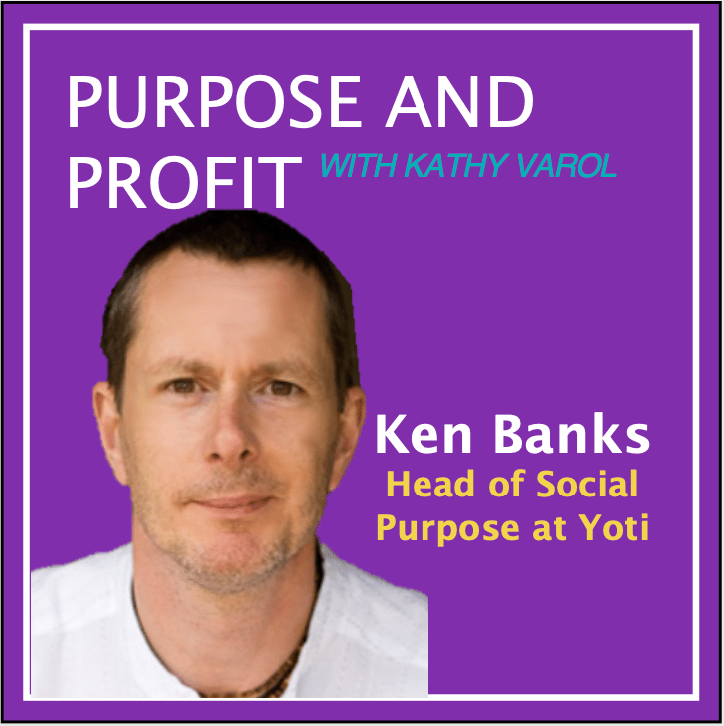Show Notes:
Ken Banks is the Head of Social Purpose at the digital identity startup Yoti. The Yoti app was built with security and privacy as a priority, ensuring a safer way for people to prove who they are, both online and off. The company believes in using tech for good, and is a certified B Corp.
Ken is an award-winning founder, technologist, anthropologist, and author committed to supporting positive social and environmental change around the world. Before joining Yoti he worked for more than two decades in global conservation and development, with a particular focus on mobile technology in Africa. Ken has had the honor of working with eminent leaders such as Archbishop Desmond Tutu, taken part in expeditions for National Geographic, and joined delegations to Africa with British Prime Minister David Cameron.
In this episode we discuss:
- What an encrypted ID is, and why it’s useful
- The importance of simplicity in creating a user experience
- The intersection of technology and social impact
Key Takeaways:
- I appreciate learning about how Yoti has been built. A company focused on identity protection, built on the principles of security and privacy, that can’t even access information on their users. Building their platform that way is leading by example, with the best interest of the customer front and center as opposed to the best interest of the company.
- The world is full of great ideas. What’s far less common are people who act on those ideas. In the book Big Magic, author Liz Gilbert writes that ideas are life-forms existing alongside all other life on Earth, They wish to become manifest, which they can only achieve through collaboration with a human partner. So ideas visit us, wave for attention, wake us in the middle of the night, and distract us during the day. Finally, in a moment of quiet, the idea will ask “Do you want to work with me?” Most people say no, and the idea moves on to find someone else that is willing to bring the idea to life. But for those who say yes, “you officially entered into a contract with inspiration, and you must try to see it through, all the way to its impossible-to-predict outcome.” I was reminded of this theory as Ken shared his story of creating Frontline SMS. He had an idea. He said yes. Then he spent a few weeks working on a kitchen table to code the idea into life. Because he said yes. Because he acted, Ken created a technology that benefited tens of millions of people across 190 countries. Ask yourself, what idea is trying to get your attention? And are you brave enough to say yes?
- Ken’s journey is a beautiful example of what can happen if you’re brave enough to follow the path of curiosity into the unknown. Maybe curiosity is our sixth sense, excitedly leaving breadcrumbs to lead us down the life path each one of us was meant to walk. From Ken’s humble upbringing, he went on to travel the African continent, use technology to impact lives, surviving a pirate attack and close encounters with lions along the way. Ken shares his unlikely journey in his book, The Pursuit of Purpose: Part Memoir, Part Study – A Book About Finding Your Way in the World. If you’re interested in learning more about where the path of curiosity led Ken, I encourage you to read it.
References:
- Connect with Ken on LinkedIn
- The Pursuit of Purpose: Part Memoir, Part Study – A Book About Finding Your Way in the World by Ken Banks
- Yoti
- UN Sustainable Development Goal 16, which includes a target for legal identity
- Togetherall
- Frontline SMS
- Listen to the Purpose and Profit episode with Unreasonable founder Daniel Epstein here
- Desmond Tutu Health Foundation
- Insulate Britain
- Elizabeth Gilbert: When a magical idea comes knocking, you have three options. The author of Eat, Pray, Love has spent her life in devotion to creativity. In an extract from her new book, Big Magic, she writes about the ‘transcendent’ world of ideas – and how we should respond to them

